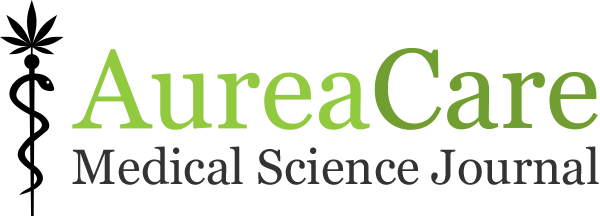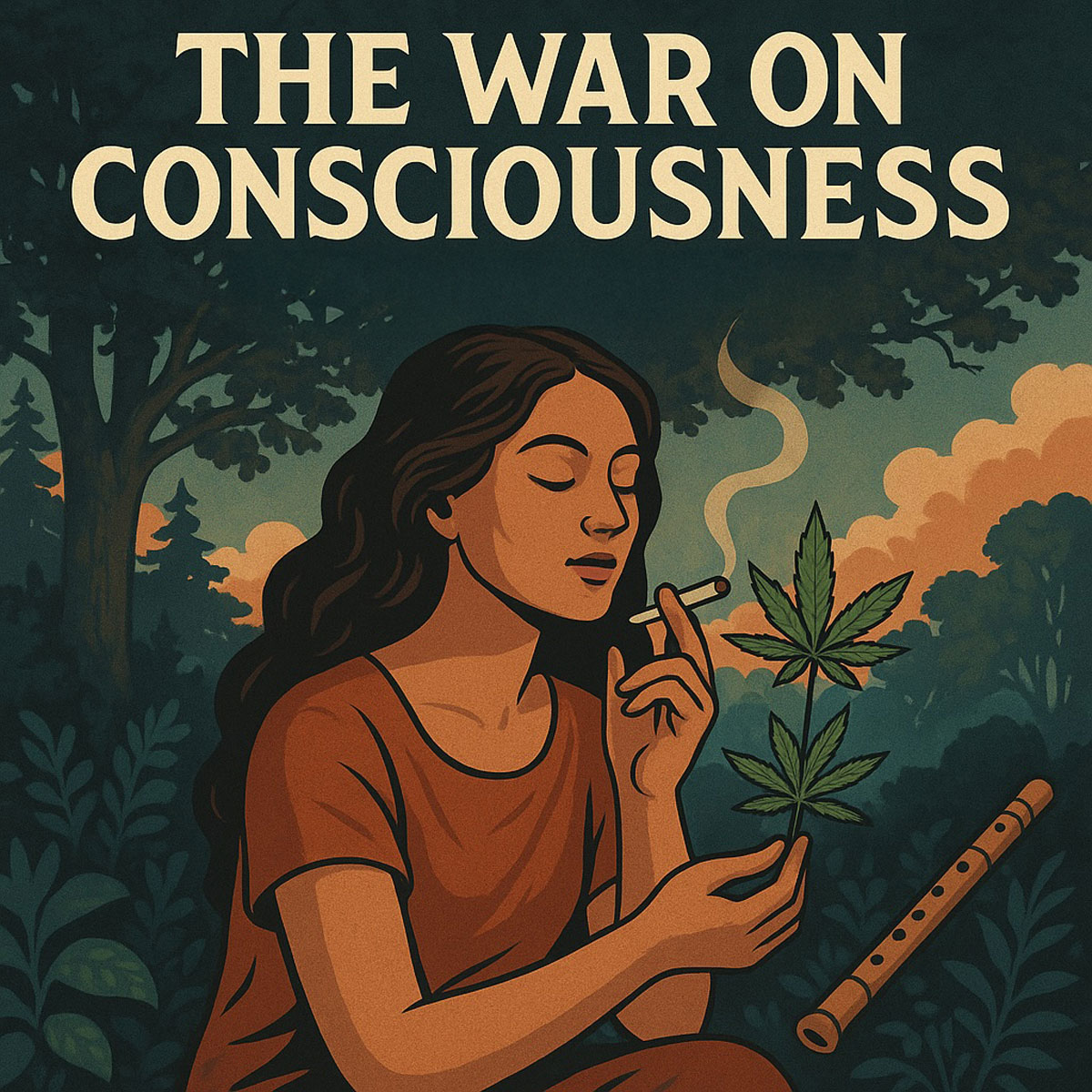Author: Dr. Kim, Medical Doctor at Aurea Care (Pen name)
Your consciousness is the only thing you’ve ever truly owned. Not your house, not even your body or your name. Those can be taken, traded, rewritten. Consciousness is different. It’s the vantage point from which you experience everything. It isn’t just something you have. It is you.
And yet we’ve allowed governments to claim jurisdiction over it—to decide which states of mind are acceptable, and which are forbidden. Coffee to sharpen the morning? Legal. Wine to soften the evening? Cheers. Benzodiazepines and sleeping pills by the millions? No problem. But soften pain with cannabis, or glimpse awe with a psychedelic—and suddenly you’re a criminal.
That’s not drug policy. That’s a policy on being human. A cultural judgment written into law.
Which is why the so-called “war on drugs” was never really about drugs at all. It was—and remains—something stranger, and more unsettling: a war on consciousness itself.
Outlawing Human Nature
Humans have always found ways to mess with their own minds. Wine in ancient Greece. Psilocybin mushrooms in Mesoamerica. Tobacco in the Americas. Kava in the Pacific. Coffee spreading from Arabia to everywhere. Even children spin in circles until they collapse in dizzy delight.
Substance use isn’t a fringe hobby or an escape. It’s a defining psychotechnology of the species. Every culture has rituals for shifting consciousness. Sometimes it’s healing. Sometimes it’s meaning. Sometimes it’s just the only thing that makes life bearable.
To ban that isn’t just banning a substance. It’s denying a core part of being human.
Now consider the absurdity. You can drink until your liver waves a white flag—that’s legal. You can buy sedatives that knock you out without restoring real sleep—no problem. But inhale cannabis?
Suddenly you’re an existential threat to society. Because you tweaked your own awareness—without permission.
And let’s be clear: cannabis isn’t illegal because it’s dangerous. If danger were the metric, alcohol and tobacco would’ve been banned long ago.
Here’s the part that would be funny—if it weren’t policy. The drug war didn’t rank substances by risk. It shoved them all into one box and stamped it: Bad Stuff. Heroin. Meth. Cannabis. Psilocybin. All treated like cousins at the same evil family reunion.
The war on drugs is pharmacological satire dressed up as policy. It has wrecked millions of lives, drained over a trillion dollars, and filled prisons with people whose only “crime” was altering their own minds. And we’re left with a law so blunt it can’t tell poison from possibility.
The war on drugs was never about safety. It was always about control.
Taking Back the Pen
What cannabis restores, in many cases, is not just relief but authorship. Modern medicine is built on command-and-control: doctor says, patient nods, pill goes down the hatch. Cannabis doesn’t play that game. It works best when patients pay attention, experiment, adjust. It’s medicine that insists you participate. Weird, right?
Meanwhile, we hand out some of the strongest brain-benders on earth—opioids, benzos, SSRIs—like Halloween candy. State-sanctioned brain-hacking. Patients collect side effects faster than benefits. Cannabis, by contrast, often lowers the static instead of adding more. People describe a nervous system that finally quiets, a night of sleep that arrives unforced. They stop feeling like lab rats being managed, and start feeling like participants in their own healing.
Cannabis doesn’t hand out miracles. It hands out pens. After years of being shuffled through treatment plans, patients finally get to write a few lines themselves: I slept. I hurt less. I got my life back.
Who Owns Your Mind?
In Sweden, patients often have to fail everything else before cannabis is even considered. That means years of symptoms. A parade of doctors: GPs, orthopedists, rheumatologists, neurologists.
Investigations—MRIs, CT scans (hello radiation), endless follow-ups. Then the meds: NSAIDs, opioids, SSRIs, anticonvulsants, benzos. Sometimes cocktails that sound more like chemistry experiments than treatment. And always: side effects.
Only after all that—if the pain is still there, and the patient still upright—might they be deemed “sick enough” to try a plant. That’s the bar. Suffering, demonstrated at length.
As a doctor—and as a human being with working logic circuits—I find this baffling. It fails medically. But more importantly, it fails the sanity check.
Here’s the thing: pain is enough. So is insomnia. So is relentless anxiety. Or just being really sick of being really sick. Or curious. Or simply wanting to explore the settings on your own brain.
Because the right to feel better—or just to experience your own mind differently—doesn’t come from policy. It precedes policy. You don’t earn the right. You’re born with it.
And that’s what makes prohibition so strange. The state has decided it gets a say over your consciousness—the most intimate terrain we possess. Not your behavior. Not your actions. Your consciousness. Your private operating system.
That’s a line no institution should ever cross. And when you see it that way, the logic flips. It’s not patients who should have to justify using a plant. It’s lawmakers who should have to justify why they think they own your brain.
The Forest, the Flute, and the Flower
The forest, the flute, and the flower have more in common than it seems. Each shifts awareness.
A forest walk softens the nervous system, turns down the static. A flute pulls you into rhythm, into breath, into the present. And a flower—cannabis—can do the same. It quiets noise. Eases pain. Restores sleep. Sometimes it even makes the woods feel enchanted, or the music feel like it was written just for you. That doesn’t make it less legitimate. It makes it more human.
Cannabis belongs to the same lineage as fasting, prayer, music, and dance—the ancient ways humans have always tuned consciousness. Not to escape life, but to feel it more fully.
Which is why criminalizing cannabis isn’t just banning a chemical. It’s cutting people off from the oldest tools we have for returning to presence—for coping, for healing, for being human.
The War on Consciousness
The war on drugs claimed it was protecting society. What it really protected was a narrow list of acceptable mental states: work-focused, sedated, numb. Anything else? Criminal.
The real crime isn’t using a plant. It’s the state pretending it owns your mind.
If they want to take your freedom because a plant eased your pain or sparked your joy—because it changed your awareness without their permission—then ask the obvious question: Who’s the criminal here?
Cannabis, more than any other substance, drags the real issue into daylight: Who owns your consciousness?
There’s only one sane answer.
You do. Always.

